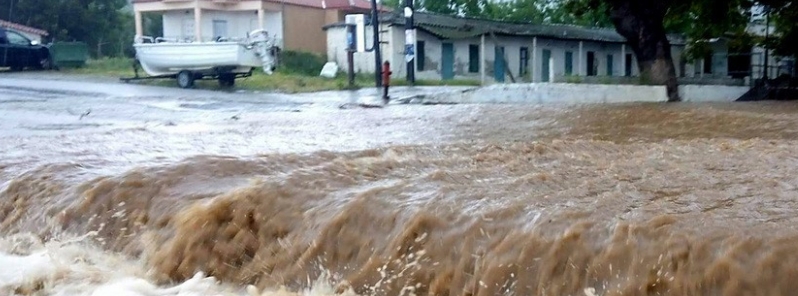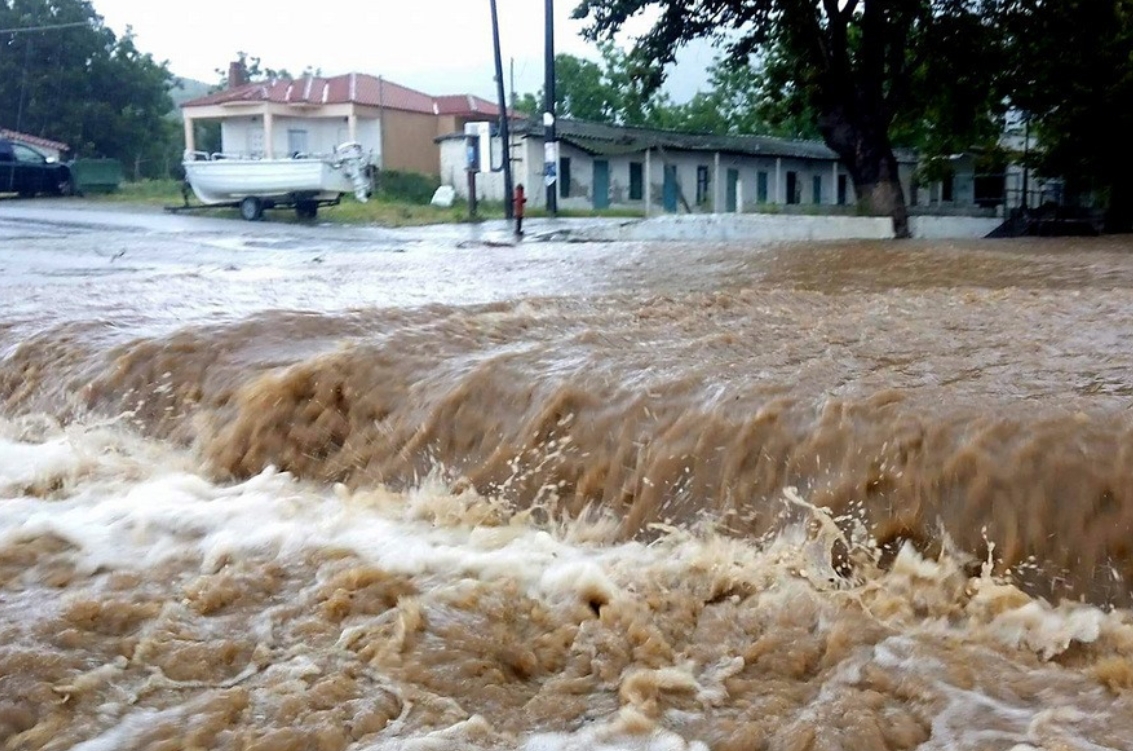Thessaly declares state of emergency after days of severe weather, Greece

Severe weather affecting Greece since April 4, 2020, prompted the country's Civil Protection to declare a state of emergency in several municipalities of Thessaly Region — South Pelion, Skopelos, and Skiathos.
Torrential rainfall caused extensive damage across the islands, particularly to the infrastructure network. It also resulted in disrupted water supply, landslides, and flash flooding, trapping some individuals in raging waters.
Skiathos recorded 183.4 mm (7.2 inches) of rainfall in a 24-hour period to April 5, and more than 310 mm (12.2 inches) in three days to April 6.
The Panagiotiko dam in the municipality of South Pilio overflowed, reaching its highest level ever.
Among the worst affected was the municipality of Zagora-Mouresi, where major landslides and widespread damage were reported, especially on roads.

In Zagora-Horefto, rockfalls and mud made roads impassable in many areas. In Skopelos, continuous rains also inflicted damage to the provincial and rural networks, as well as the sewerage network. A wide swath of the island lost supply to water on Monday, April 6, while several areas have been flooded.
Winds up to 100 km/h (62 mph) hit parts of Central Greece region, disrupting sea travel and knocking down trees.


Image credit: Greece Civil Protection
Meanwhile, in Biotia, heavy rains flooded roads, nearly drowning two people in a vehicle. The 50-year old driver said he underestimated the water level. Both were rescued by Fire Brigades and were taken to the local health center.
Many parts of the northern and central Greece were blanketed by rare spring snow at the beginning of April, according to local media. The mountainous areas of Evrytaia, Pthiotis, as well as areas in Thessaly, recorded heavy snow. Some places saw more than 30 cm (11.8 inches) in just a few hours.
As of Wednesday, April 8, the Meteoalarm issued yellow warnings for winds and rain. The severe weather is forecast to weaken by Thursday, April 9, as the front moves to the central and southern parts of Greece.
Featured image credit: Greece Civil Protection

Commenting rules and guidelines
We value the thoughts and opinions of our readers and welcome healthy discussions on our website. In order to maintain a respectful and positive community, we ask that all commenters follow these rules:
We reserve the right to remove any comments that violate these rules. By commenting on our website, you agree to abide by these guidelines. Thank you for helping to create a positive and welcoming environment for all.